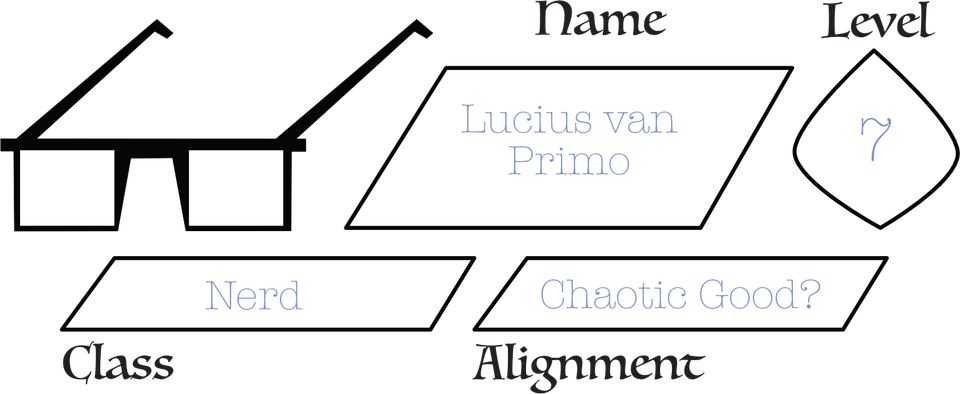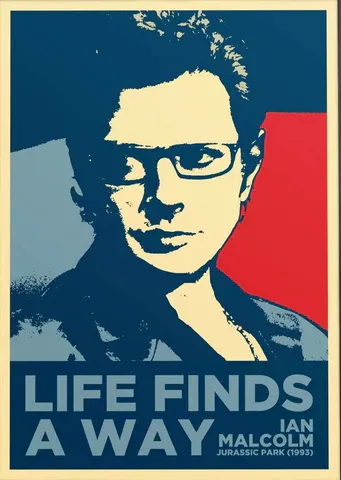Nerd Notes - October

Hey there Nerds -
What do you think of the new banner image for Nerd Notes? I was going for the vibe of an RPG character sheet…
We are all the way into autumn here in the Netherlands, which comes with significantly less of the charm of like Maine or somewhere like that and significantly more darkness. I’ve busted out the fuzzy slippers and started on the daily dose of vitamin D supplements. I also have a crazy travel schedule between now and the end of the year - 6 countries on 4 continents starting this weekend in Lille, France for Pokemon.
This month is a very random collection of mini notes. I’ve mentioned before - there’s a lot bouncing around in my head these days. If there are particular areas you want me to focus on more, let me know! I’m happy to indulge…
All hail the Hedgehog?
No, not Sonic. I imagine if you’re reading this you’re familiar with Isaiah Berlin’s essay on the fox and the hedgehog, but just in case the simple version of it is that a fox = someone who knows a bunch of things but none of them with any particular depth, whereas a mole = someone who knows one thing really deeply. There’s a decent chance that you know about it not from Berlin (or, apparently, Archilocus - the classical Greek philosopher who coined the adage…) but from the book Range by David Epstein. It’s a neat little framework.
Berlin and Epstein approach the idea somewhat differently - Berlin is more focused on hedgehogs as people who interpret everything through a single defining framework and foxes as those who apply multiple different lenses and frameworks to interpret the world. Epstein is a little more focused on expertise and experience where the hedgehog has deep expertise and the fox broad expertise. I’d say Berlin was more indifferent as far as judging which of the two was of greater value (at least this is what I remember, but it’s been a while), whereas Epstein’s entire book is glorifying the generalist.
Can I make a counterintuitive assertion? Here it is: at the dawn of the age of AI, the tables have turned. We need the hedgehogs more than ever. The reason this feels counterintuitive to me is because generative AI tools seem like they make it vastly easier for anyone - even a hedgehog - to become a fox. But if we’re not seeing the “Life finds a way” evolution of one species to another, I suspect it’s because the hedgehogs, having probed the expertise of the LLM in whatever their own particular field is find it wanting and therefore distrust its ability to provide sufficient expertise in other fields as well.

This state of affairs might only apply to the nascent days of AI (I think we’re still there). I increasingly think AGI is going to be a perpetual technology of the future, but I do think the maturation of our AI models might get us to a place where foxes again regain prominence. This transitional period, though, it might be kind of rough? Because even more than in technological waves of the past, LLMs can make aspiring foxes think they know about something that they don’t really know at all. I feel like I’m already having more Dunning Kruger conversations lately than I used to with people who are AI enthusiasts.
I don’t have a clean moral to this story…except to say that both the fox and the hedgehog benefit from a healthy dose of humility and rigour.
Not sure how I feel about this
According to Steam, I played 399 hours of Balatro to get to this point.

And Alexander wept for there were no more worlds to conquer.
Jk. I can still try and get to gold stake on every deck, or - as my friend Mehdi suggested - maybe it’s time to uninstall Balatro.
The charmed idiot plays a game
I took Mehdi’s advice, which left me with a bit of free time on my hands, so I’ve gotten a little bit sucked into a weird kind of game:
- This game has 5 levels, and you can complete them in any order you want.
- Each level requires a different skill, and later levels require some combination of skills.
- You can play each level as many times as you want before your timer runs out, but it does cost you the in-game currency every time you replay a level. Also, different players get different durations on their timer.
- Each level has a practice mode that doesn’t cost the currency, but it also doesn’t count if you beat the level in practice mode.
- Not every level is available every day. In fact, you have to plan the order in which you want to play through the levels in advance - though you can keep playing later levels even if you don’t beat an earlier level.
The game is called “Dutch Civic Integration.” It’s not the most fun game by any stretch of the imagination, but it is a game that I have to beat if I want to remain in this country. The 5 levels are: Reading, Listening, Speaking, Writing, and the boss battle - Knowledge of Culture/History/Politics.
Fortunately, I have a pretty long timer to work with. I can’t even apply for permanent residence until next June, and my visa doesn’t expire until 2028. Consequently, I decided to play the game in the stupidest manner possible…which requires a flashback.
Flashback to high school. In my freshman year, I had 2 lab partners in biology who were really great. They were so much more on top of their shit than I was, so they kept me organized. I could tell talking with them that they were also on top of their shit viz a vis the class, so I was surprised when I found out that they had spent hours studying for the midterm. I had spent exactly no time studying. When the results came back, they had done better than me…but not that much better? They got like a 98% and I got a 96% or something like that. It would be a few years before I formally defined my theory of the midterm, but by the time I went to university I had a solid rule: if a course has a midterm test, just don’t study for it. Use it as a way to calibrate how well you’re actually understanding what’s going on in the course. If you do poorly, then you know you need to put in more work in the second half…but if you do well, then you also don’t even need to study for the final.
So in the present day, I’ve been going in to take my Civic Integration exams totally blind. I sat down for the listening exam last week with no idea at all what I was getting into. How many questions? How long would I have? What format? Totally clueless. If I completely bomb, then I know that my Dutch needs some serious work, and I’ll put that work in before I take another set of tests. But as of this writing, I actually passed two exams (reading & listening, the easiest ones) and am awaiting the results of two more (writing, the hardest one which I doubt I passed…but there is a chance; and speaking, about which the less said the better).
I’ll beat the game eventually because I have to, but I won’t be too distraught when I can’t play it anymore.
Games within the game? -
A couple months ago, I found myself totally engrossed by the Tour de France. Like “sitting & watching for an entire weekend when I could have been out exploring Belin” engrossed…and with no regrets? I don’t have a deep understanding of cycling, so I have to give a lot of credit to the Dutch language broadcast in how well it made the sport accessible to a total noob.
What I found myself most caught up with was the idea that there are games within the game. This might be totally obvious, but when the race starts not every competitor has designs on the yellow jersey. I think I had some understanding of this in so far as teams have their featured rider, and the other riders are there to protect that rider, help that rider preserve his energy, and fend off attacks so that he can break at just the right time to either increase his lead or to close the time gap with the leader. But that’s still the same game, it’s just broadening perspective to see it as a team sport rather than an individual one.
But there are other jerseys than the yellow jersey too! Three others, in fact - one for the best performer in the mountain stages, one for the best young rider, and one for the points leader each day. Some racers are there to chase those jerseys. On the second day that I watched, the guy who won the previous day had lactic acidosis and just could not get himself going; he dropped out of the overall race, but when he was interviewed he was still totally upbeat because he came into the race hoping to win a stage for the first time.
My American mind often finds this hard to comprehend, because all the major American sports leagues are all geared around a single big winner who emerges at the end of a grueling tournament (no offense to the NBA Cup, but nice try NBA). Even after years of watching the Premiership which has 3 trophies plus the inter-European league trophies, it still surprises me.
If you pause and think about it, there are kind of games within the game of the American leagues - tanking in the NBA is kind of this? But also young teams trying to prove their mettle is another version. There are individuals who are chasing accolades that are independent of their team. But all of that is tacit. On media day, no NBA player is going to say, “I know this season is basically a wash for us as a team, so I’m going to just try and make one of the All NBA teams” - even though that sentiment is undoubtedly true. In fact, players who are seen as optimizing individual glory over the good of the team are often stigmatized.
So I appreciate the sports where there are explicit games within the game and ways for different people or teams to approach the game in their own way.
And in spite of all that, Arsenal still can’t figure out how to ever win a trophy.
As mentioned at the top, we have the Lille Regional Championship coming up this weekend. I’m playing a control deck - essentially, figure out how to prevent the opponent from attacking and then run them out of resources instead of knocking them out - because I’ve embraced the fact that what I want out of Pokemon is an interesting puzzle to solve every time I sit down to play. Because my deck doesn’t take prize cards and plays only a single copy of a lot of things, every time I sit down I have to figure out how to solve the puzzle in front of me with the resources available to me and while the puzzle itself is fighting against me solving it. Even when it doesn’t work out, I find that satisfying. I am not nearly practiced enough with this deck to expect a lot of success…but Lille is also home to my favorite cafe in any city where we’ve played Pokemon, so if I crash out early it’s off to Coffee Makers.
That’s all for now - catch you all soon!

Member discussion